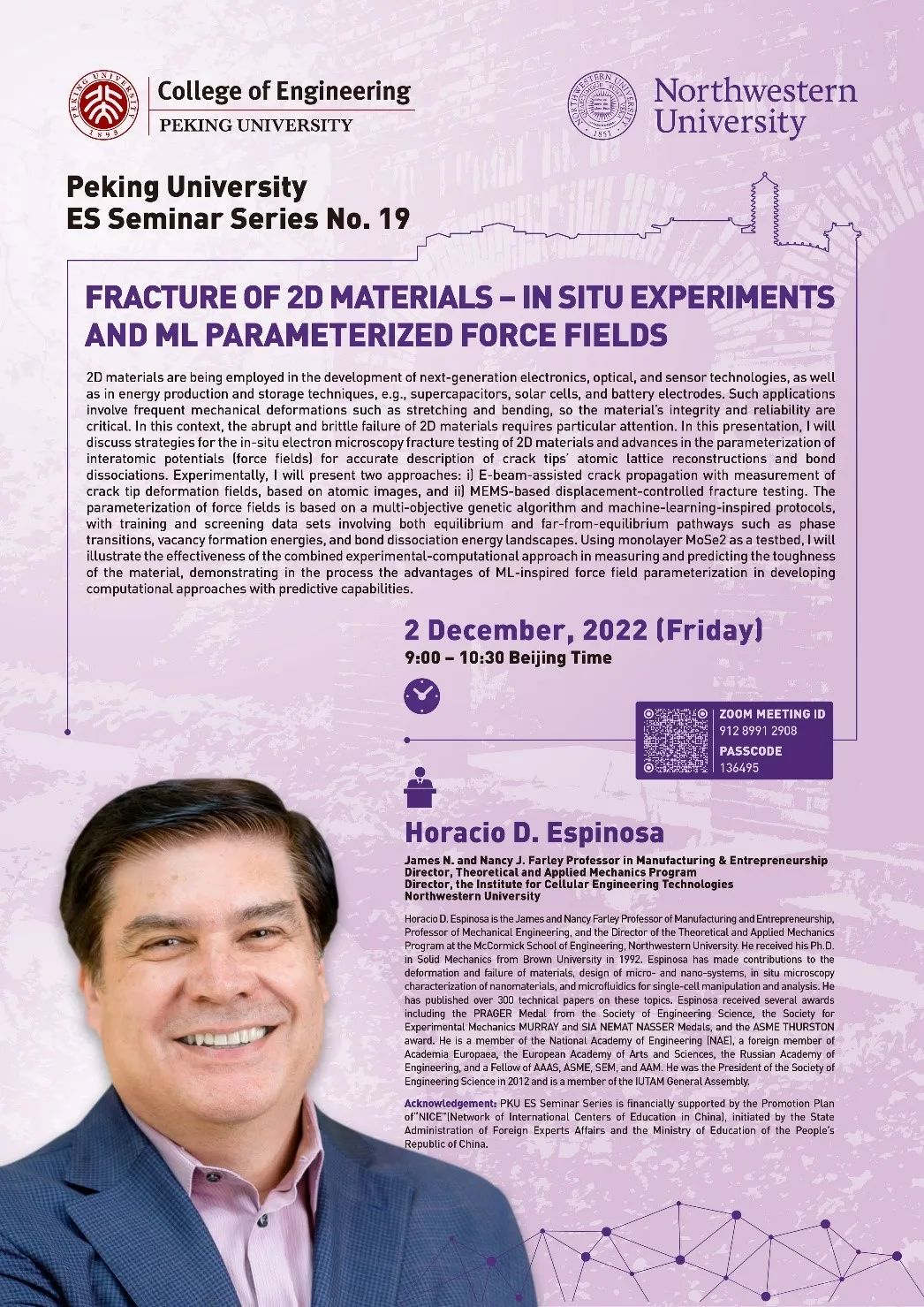Speaker:
Prof. Horacio D. Espinosa
James N. and Nancy J. Farley Professor in Manufacturing & Entrepreneurship
Director, Theoretical and Applied Mechanics Program
Director, the Institute for Cellular Engineering Technologies
Northwestern University
Host: Dr. Wei Xiaoding, College of Engineering
Time: 9:00-10:30 am, December 2, 2022, GMT+8
Venue: Zoom Meeting ID: 912 8991 2908 Passcode: 136495
Abstract:
2D materials are being employed in the development of next-generation electronics, optical, and sensor technologies, as well as in energy production and storage techniques, e.g., supercapacitors, solar cells, and battery electrodes. Such applications involve frequent mechanical deformations such as stretching and bending, so the material’s integrity and reliability are critical. In this context, the abrupt and brittle failure of 2D materials requires particular attention. In this presentation, I will discuss strategies for the in-situ electron microscopy fracture testing of 2D materials and advances in the parameterization of interatomic potentials (force fields) for accurate description of crack tips’ atomic lattice reconstructions and bond dissociations. Experimentally, I will present two approaches: i) E-beam-assisted crack propagation with measurement of crack tip deformation fields, based on atomic images, and ii) MEMS-based displacement-controlled fracture testing. The parameterization of force fields is based on a multi-objective genetic algorithm and machine-learning-inspired protocols, with training and screening data sets involving both equilibrium and far-from-equilibrium pathways such as phase transitions, vacancy formation energies, and bond dissociation energy landscapes. Using monolayer MoSe2 as a testbed, I will illustrate the effectiveness of the combined experimental-computational approach in measuring and predicting the toughness of the material, demonstrating in the process the advantages of ML-inspired force field parameterization in developing computational approaches with predictive capabilities.
Biography:
Horacio D. Espinosa is the James and Nancy Farley Professor of Manufacturing and Entrepreneurship, Professor of Mechanical Engineering, and the Director of the Theoretical and Applied Mechanics Program at the McCormick School of Engineering, Northwestern University. He received his Ph.D. in Solid Mechanics from Brown University in 1992. Espinosa has made contributions to the deformation and failure of materials, design of micro- and nano-systems, in situ microscopy characterization of nanomaterials, and microfluidics for single-cell manipulation and analysis. He has published over 300 technical papers on these topics. Espinosa received several awards including the PRAGER Medal from the Society of Engineering Science, the Society for Experimental Mechanics MURRAY and SIA NEMAT NASSER Medals, and the ASME THURSTON award. He is a member of the National Academy of Engineering (NAE), a foreign member of Academia Europaea, the European Academy of Arts and Sciences, the Russian Academy of Engineering, and a Fellow of AAAS, ASME, SEM, and AAM. He was the President of the Society of Engineering Science in 2012 and is a member of the IUTAM General Assembly.
Source: College of Engineering
